Faculty

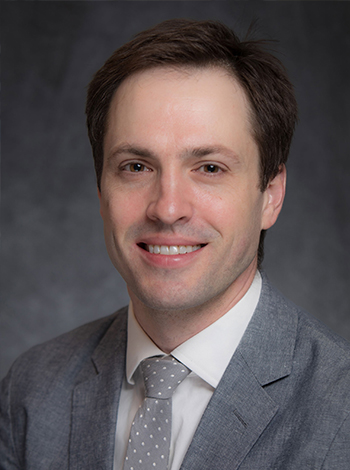
Bio
I received my BA in Biology from Grinnell College, Iowa. I received my medical degree, a residency in Adult Psychiatry, and a fellowship in Child and Adolescent Psychiatry, where I was Chief Fellow, here at the University of Minnesota. My role includes two days a week practicing at the Community University Health Care Center. I was also the Program Director of the Child and Adolescent Psychiatry Fellowship. Additional teaching roles include precepting the child and adolescent consult clinic at the U of M Masonic Children's Hospital and providing clinical supervision of fellows in the M Health Fairview Psychiatry Clinic. I have also presented nationally at over 30 conferences, including 9 grand rounds lectures.
Expertise
- Child and adolescent suicide
- Child and adolescent depression
Administrative Assistant
(for academic support only)
Molly Jokimaki
jokim004@umn.edu
In the Media
- 2021: One of the members of the department’s PERLab was featured in this Medical School article titled, "New Framework Teaches Better Doctor-Patient Conversations During a Personal Crisis".
Education
Fellowships, Residencies, and Visiting Engagements
Licensures and Certifications
Honors and Recognition
Professional Memberships
Selected Publications
Selected Presentations
Contact
Address
Masonic Institute for the Developing Brain, 2025 E River Pkwy, Minneapolis, MN 55414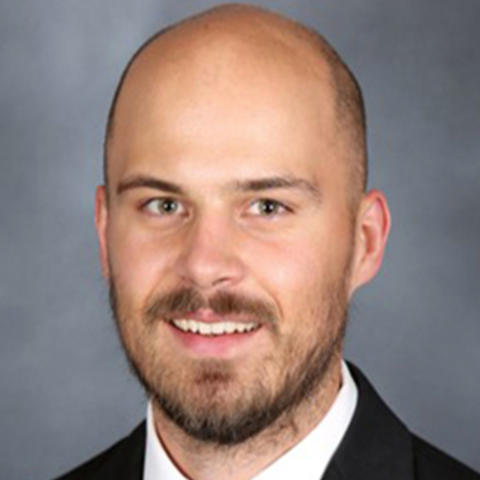
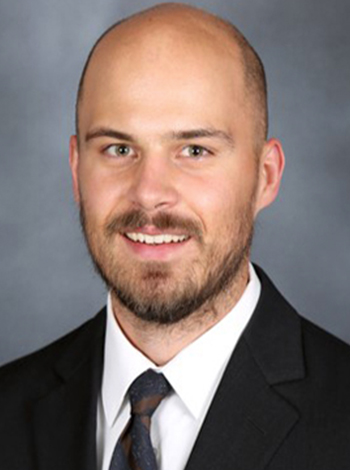
Bio
I am an Assistant Professor in the Department of Psychiatry & Behavioral Sciences. I earned my undergraduate degree in cell and molecular biology (Magna Cum Laude) from the University of Minnesota Duluth and completed my psychiatric residency at the U of M. I further went through a Consult-Liaison Psychiatry Fellowship at the Medical College of Wisconsin in Milwaukee, which focused on perinatal psychiatry, psycho-oncology, addiction work, and transplant psychiatry.
Within my role, I will be practicing primarily at the hospital on the East Bank, doing inpatient consult liaison psychiatry, including a half-day clinic every week working with the Women’s Wellbeing Team. A key highlight of my job is working alongside medical students and residents within a clinical setting, plus being involved in the more formal didactic lectures given to second-year residents.
Administrative Assistant
(for academic support only)
Teneshia Collins
coll1148@umn.edu
Education
Fellowships, Residencies, and Visiting Engagements
Licensures and Certifications
Honors and Recognition
Professional Memberships
Selected Publications
Selected Presentations
Contact
Address
Department of Psychiatry & Behavioral Sciences, F282/2A West Building, 2450 Riverside Avenue South, Minneapolis, MN 55454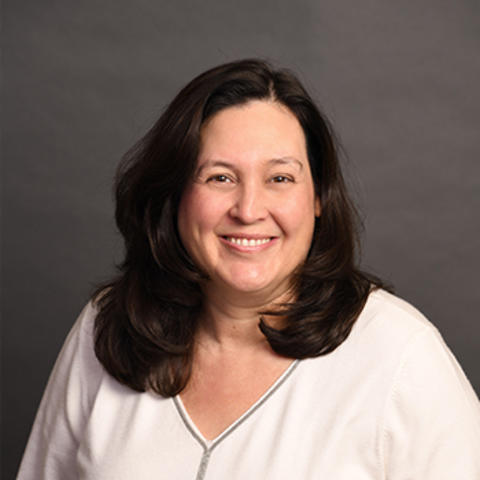
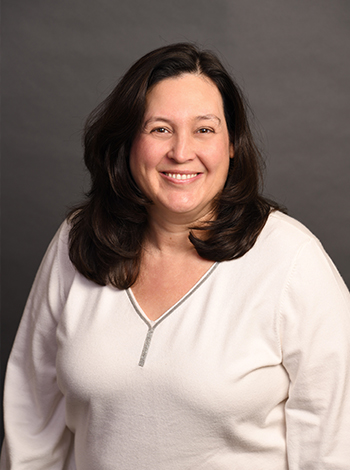
Bio
I am an Associate Professor in the Department of Psychiatry & Behavioral Sciences. I received my BA from DePauw University and graduated from Indiana University Purdue University Indianapolis with a Ph.D. in Clinical Rehabilitation Psychology in 2003. I completed an APA-accredited internship at the University of Maryland Medical Center in Baltimore, Maryland, and completed a postdoctoral fellowship at the Sheps Center for Health Services Research at the University of North Carolina at Chapel Hill. My work focuses on the development of psychosocial interventions for people with early psychosis, bipolar disorder, and schizophrenia. I am also interested in developing treatment approaches that integrate positive psychology approaches to enhance recovery. I was part of the development team of the NAVIGATE intervention for people with first-episode psychosis and I have trained over 30 NAVIGATE teams nationally and internationally.
I am co-leading the EPI-MINN Hub of the Early Psychosis Intervention Network (EPINET). We aim to collect harmonized data with 7 other hubs across the country, deliver measurement-based care progress summaries to clients and clinicians, and to examine the benefits of cognitive training and a digital-based application to improve cognitive functioning in an early psychosis coordinated specialty care program.
I am a licensed psychologist in the states of Minnesota and North Carolina and part of the NAVIGATE team in the department’s St. Louis Park, MN, location. I provide clinical supervision for psychology graduate students, psychiatry residents, and social work students in the NAVIGATE and Strengths programs. I am a member of the APA Task Force on Serious Mental Illness and Serious Emotional Disturbance. I provide clinical training in Individual Resiliency Training, Illness Management and Recovery, and positive psychology approaches for people with serious mental illness.
Within the department, I am an Assistant Director of the Inclusion Excellence and Well-Being Committee.
Expertise
- NAVIGATE; a multi-disciplinary, treatment-based program specifically designed for persons with first-episode psychosis
Administrative Assistant
(for academic support only)
Natasha Hampton-Anderson
nhampton@umn.edu
In the Media
- 2023: Featured in this article titled, “New Inclusive Excellence and Well-Being Council Leadership excited to get started”.
- 2022: Featured in this piece titled, "U of M team using state funding to develop a “blueprint” to treat young people with bipolar disorder".
- 2022: Featured in this piece titled, "The on-again-off-again nature of the pandemic-mangled workplace and its impact on employees".
- 2021: Helped write an article for Psychiatric Times titled, "Promoting Resiliency After First-Episode Psychosis".
Research Summary
Dr. Meyer-Kalos serves as Principal and Co-Investigator for several research projects. "My research is primarily focused on developing treatments for people with schizophrenia and serious mental illness," she said. "Over the last 10 years, I've also become interested in first-episode psychosis."
Education
Fellowships, Residencies, and Visiting Engagements
Licensures and Certifications
Professional Memberships
Selected Publications
Selected Presentations
Contact
Address
Department of Psychiatry & Behavioral Sciences, F282/2A West Building, 2450 Riverside Avenue South, Minneapolis, MN 55454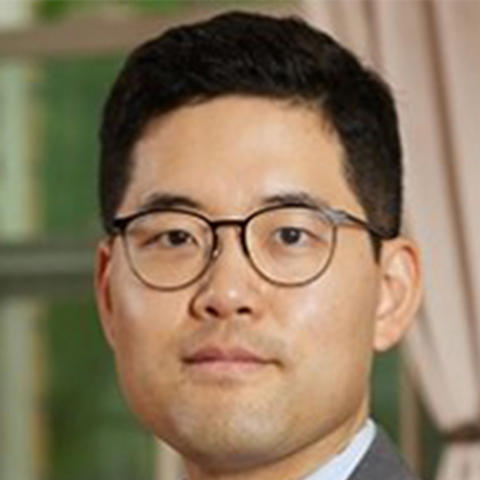
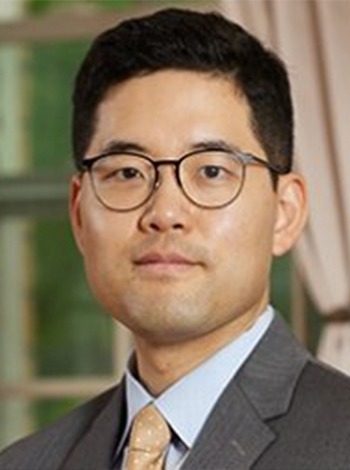
Bio
I am board-certified in general, addiction, and forensic psychiatry. I currently serve as the Mental Health & Addiction Service Line Chief. Prior to joining the faculty at the University of Minnesota Medical School, I was the Medical Director of the Inpatient Program in the Division of Alcohol, Drugs, and Addiction at McLean Hospital and a faculty at Harvard Medical School.
My clinical and scholarly interests include optimizing alcohol and drug withdrawal management, addressing co-occurring psychiatric illness in individuals with substance use disorder, psychiatric ethics and nosology, and forensic psychiatry. I provide forensic consultation and expert witness services for civil and criminal cases and am passionate about teaching fellows, residents, and medical students.
Education
Fellowships, Residencies, and Visiting Engagements
Licensures and Certifications
Professional Memberships
Selected Publications
Selected Presentations
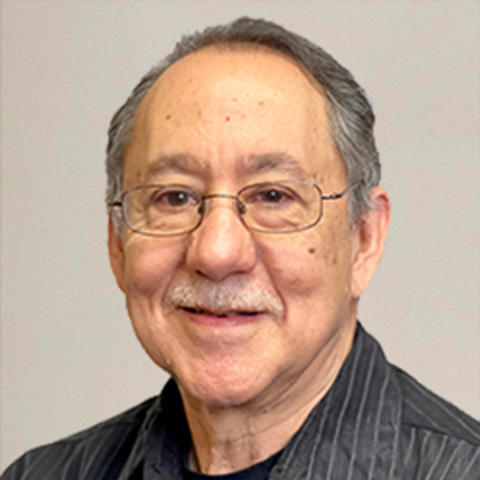
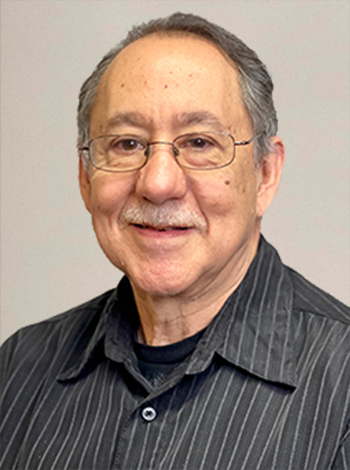
Bio
I am a Professor of Psychiatry who studies the association of addiction and comorbid psychiatric disorders in the Department of Psychiatry & Behavioral Sciences. I received my BA in Psychology from the University of Nebraska, graduating Magna Cum Laude. I completed my PhD in Clinical Psychology from the University of Missouri, and my Clinical Psychology Internship from the Eastern Pennsylvania Psychiatric Institute.
My current research, funded by NIAAA, focuses on developing and testing cognitive behavioral treatments that can improve the alcohol use disorder treatment outcomes for individuals with co-occurring anxiety and depressive disorders. My research has also explored co-occurring disorders' epidemiology, causes, course, and treatment ("comorbidity").
I am the Program Director of the NIDA T32 Postdoctoral Training Program focused on Comorbidity between Substance Abuse and Mental Illness.
My clinical experience, practice, and supervision have focused on the treatment of anxiety disorders, especially obsessive-compulsive disorder.
Expertise
- Alcohol use disorders with co-occurring anxiety disorders
Administrative Assistant
(for academic support only)
Teneshia Collins
coll1148@umn.edu
In the Media
- 2023: Research is highlighted in this Yahoo!Life article titled, “Study: People With Anxiety Are More Likely to Experience Symptoms of Alcohol Use Disorder.”
Research Summary
Internalizing psychopathology (anxiety disorders and depressive disorders) co-occurring with substance abuse disorders (especially alcohol dependence). My research has explored the, epidemiology, causes, course and treatment of co-occurring disorders ("comorbidity").
Clinical Summary
Behavioral and cognitive therapies for anxiety disorders, especially obsessive compulsive disorder
Education
Fellowships, Residencies, and Visiting Engagements
Licensures and Certifications
Honors and Recognition
Professional Memberships
Selected Publications
Contact
Address
Department of Psychiatry & Behavioral Sciences, F282/2A West Building, 2450 Riverside Avenue South, Minneapolis, MN 55454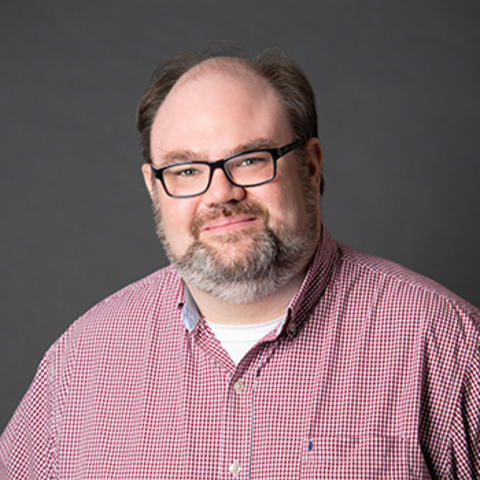
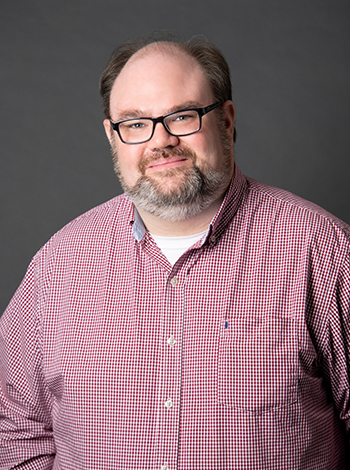
Bio
I am a child and adolescent clinical psychologist licensed in both Minnesota and North Dakota. I completed my B.S. in Psychology at the University of Illinois Urbana-Champaign and my MA and PhD in Clinical Psychology at the University of North Dakota. I completed an APA-accredited pre-doctoral internship at the Youth Opportunity Center, a residential treatment facility for youth with serious emotional and behavioral difficulties. In addition, I completed a fellowship in clinical child psychology at the University of Minnesota with a focus on the development and implementation of evidence-based intensive outpatient programs for adolescents with depression and children with disruptive behavior disorders.
My training and experience have focused on providing evidence-based assessment and interventions with children and adolescents in a variety of settings including schools, community mental health, intensive outpatient programs, partial hospitalization, and residential treatment. Primary treatment modalities are Cognitive Behavioral Therapy (CBT) and Dialectical Behavior Therapy (DBT). At MIDB (Masonic Institute for the Developing Brain), I work with youth (and their families) who have severe emotion regulation issues, which lead to impulsive behaviors such as suicidal behavior or self-harm. I also provide individual, family, and group therapy for adolescents with depression, anxiety, PTSD, and ADHD.
My primary goal is to help strengthen the DBT program for adolescents and families. I aim to improve the implementation and assessment of treatment outcomes and to work to disseminate DBT for adolescents more widely. As part of my position, I am involved in the supervision of future clinicians and plan to be involved in research related to treatment outcomes and interpersonal factors that influence youth depression, suicidal ideation, and self-injurious behavior.
Administrative Assistant
(for academic support only)
Shelly Slominski
slomi001@umn.edu
Education
Fellowships, Residencies, and Visiting Engagements
Licensures and Certifications
Honors and Recognition
Professional Memberships
Contact
Address
Masonic Institute for the Developing Brain, 2025 E River Pkwy, Minneapolis, MN 55414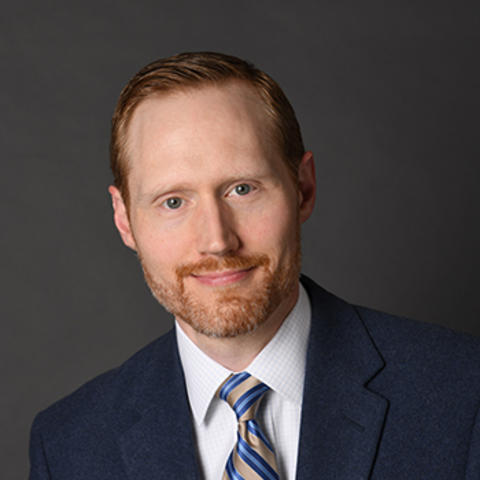
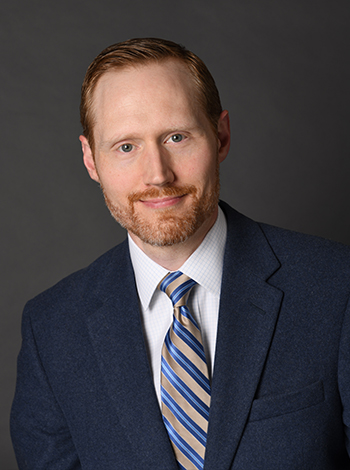
Bio
I obtained a Bachelor of Arts with a major in Psychology from Rice University in 2005, followed by my Doctor of Medicine from the University of Texas Medical School at Houston in 2010. I completed clinical training in Psychiatry (2014) and Child and Adolescent Psychiatry (2016) at the Mayo Clinic School of Graduate Medical Education, where I twice served as Chief Resident. I then undertook a two-year clinical research fellowship, the Clinician-Investigator Training Program, with a focus on neuromodulation in adolescent mood disorders and suicidal behavior.
I joined the University of Minnesota Medical School faculty in 2019. My research focuses on the neurobiological correlates of suicidal behavior in adolescents with mood disorders, with the aim of improving risk assessment and identifying novel treatment approaches. I am also involved in ongoing projects utilizing noninvasive brain stimulation, including repetitive TMS, theta burst stimulation, and transcranial direct current stimulation (tDCS), as treatment interventions for children and adolescents with depression.
I am also the recipient of a 2018 NARSAD Young Investigator Grant from the Brain & Behavior Research Foundation, which will support my work in studying state-dependent impairment in cortical inhibition and network connectivity in adolescents with suicidal behavior. I have also presented both nationally and internationally at over 35 conferences.
Expertise
- Mood disorders
Administrative Assistant
(for academic support only)
Molly Jokimaki
jokim004@umn.edu
Research Summary
Dr. Lewis' research focuses on the neurobiological correlates of suicidal behavior in adolescents with mood disorders, with the aims of improving risk assessment and identifying novel treatment approaches. His previous work has found impaired cortical inhibition, measured by transcranial magnetic stimulation (TMS), and alterations in excitatory neurotransmitter levels, measured by magnetic resonance spectroscopy, in youth with suicidal behavior. Dr. Lewis is also involved in ongoing projects utilizing noninvasive brain stimulation, including repetitive TMS, theta burst stimulation, and transcranial direct current stimulation (tDCS), as treatment interventions for children and adolescents with depression.
Education
Fellowships, Residencies, and Visiting Engagements
Licensures and Certifications
Honors and Recognition
Professional Memberships
Selected Publications
Selected Presentations
Contact
Address
Masonic Institute for the Developing Brain, 2025 E River Pkwy, Minneapolis, MN 55414

Bio
I hold the Drs. T. J. and Ella M. Arneson Land-Grant Chair in Human Behavior at the University of Minnesota where I am a Professor of Psychiatry and Director of Adult Mental Health Research. I began my undergraduate work at the Massachusetts Institute of Technology, completing my Bachelor's and MD degrees at Johns Hopkins University. I completed a psychiatry residency and fellowship in neuroimaging at Stanford University where I served on the faculty in the Department of Psychiatry. I joined the University of Minnesota in 2001.
My research interest is in the use of neuroimaging approaches to identify circuit abnormalities in brain disorders such as schizophrenia, traumatic brain injury, and addiction and then to use these circuits as treatment targets for noninvasive neuromodulation interventions.
In 2014, I received the CTSI Mentor of the Year Award. In 2020, I was added to the Dean’s “Wall of Scholarship” for reaching more than 1,000 citations of a 1994 paper that I was a senior author titled, A Quantitative Magnetic Resonance Imaging Study of Changes in Brain Morphology from Infancy to Late Adulthood. The paper is cited as evidence that MRI can be used to measure the living human brain.
Within the university, I am a member of the Medical School Research Council and Director of the KL2 Seminar for the Clinical and Translational Scientific Institute (CTSI).
Expertise
- Schizophrenia
- Neuroimaging
- Non-invasive neuromodulation
- PTSD
- Traumatic brain injury (TBI)
- Substance abuse
Administrative Assistant
(for academic support only)
Shelly Slominski
slomi001@umn.edu
In the Media
- 2023: Featured in this article titled, “VA/UMN study designed to help prevent Veteran suicide.”
Research Summary
Dr. Lim's research interest is in the use of neuroimaging approaches to identify circuit abnormalities in brain disorders such as schizophrenia, traumatic brain injury and addiction and then to use these circuits as treatment targets for noninvasive neuromodulation interventions.
Education
Fellowships, Residencies, and Visiting Engagements
Licensures and Certifications
Honors and Recognition
Professional Memberships
Selected Publications
Contact
Address
Department of Psychiatry & Behavioral Sciences, F282/2A West Building, 2450 Riverside Avenue South, Minneapolis, MN 55454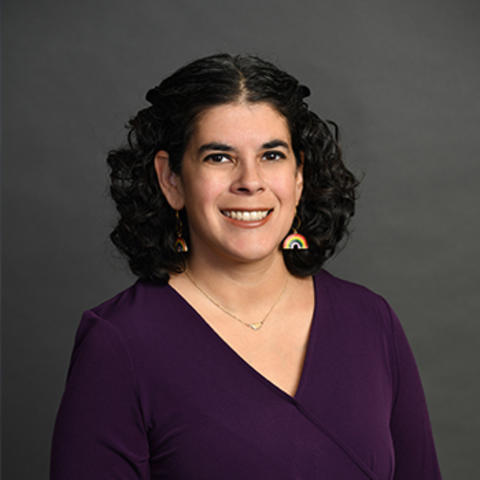
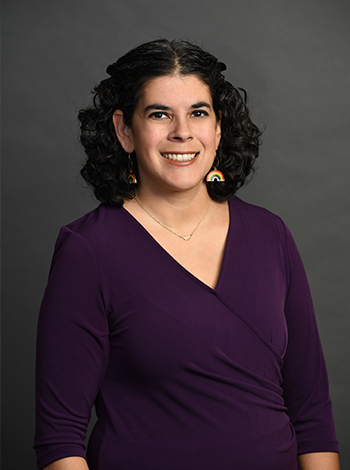
Bio
My experience and expertise sits at the intersection of early childhood mental health research, practical applications, and policy implications. I specialize in social-emotional development in early and middle childhood, with particular emphasis on children experiencing behavioral concerns or who have experienced traumatic events. In the Department of Psychiatry and Behavioral Sciences, I co-direct the Early Childhood Mental Health Program. In addition to outpatient treatment and assessment, my body of work is centered on community-based collaboration with pediatric primary care clinics and early childcare programs.
I am also passionate about issues related to diversity, equity, and inclusion. I regularly conduct trainings that link together DEI and children’s mental health (e.g. talking with children about race and racism). Within the department, I am the Director of Inclusive Excellence and Well-Being (IEWB; formerly known as Deputy Vice Chair for the Impact & Wellbeing Sector). Together with my colleague, Dr. Danielle Vrieze, I founded and co-chaired our department’s first Diversity & Inclusion Committee in 2017. We have grown so much since then, and now integrate our DEI work into the IEWB Council. I also co-direct the DEI Thread within the Undergraduate Medical Education curriculum. From 2021 to 2023, I chaired the Medical School DEI Council through the Office of Diversity, Equity, and Inclusion.
Prior to joining the Department of Psychiatry & Behavioral Sciences faculty, I worked as a Psychologist at a community-based non-profit agency in New York City, the New York Center for Child Development, where I provided mental health treatment and consultation, as well as training for providers located in Pediatric Primary Care Clinics, Early Childhood Education (ECE) Centers, Home-based Daycare programs, and mental health clinics. I served as the team lead for a group of mental health professionals who provided professional development training and consultation in ECE centers. During my time in New York, I held academic appointments at Columbia University Medical College, and Weill Cornell Medical College, and hospital appointments with the Family Health Center of Harlem and New York Presbyterian Hospital.
I completed my undergraduate and Masters degrees in Psychology at Stanford University and my doctoral work at the University of Minnesota’s Institute for Child Development, where I collaborated and published with internationally recognized experts on aggressive behavior, social competence, risk, and resilience in children and families. I completed my clinical psychology internship with the Children’s Hospital Los Angeles and my post-doctoral training with Brown University’s Alpert Medical School and Bradley Hospital in Providence, Rhode Island.
In my life outside of work, I enjoy spending time with my partner and our three “furry children”, running, exploring the trails of the Twin Cities, singing in a community choir, and volunteering with Girls on the Run Minnesota as a member of the Board of Directors.
Expertise
- Infant/early childhood mental health
- Child development/developmental psychopathology
- Community-based relationships and projects
Administrative Assistant
(for academic support only)
Molly Jokimaki
jokim004@umn.edu
In the Media
- 2023: Featured in this article titled, “New Inclusive Excellence and Well-Being Council leadership excited to get started”.
- 2022: Featured in this article titled, "Interprofessional collaboration at the U aims to improve mental health treatment for children and adolescents".
- 2020: Featured in this Minnesota Public Radio piece titled, "She saw me in George Floyd’: The trauma of watching another black person die".
Research Summary
Dr. Lingras is focused on bridging gaps between academic research and practice by providers who work directly with children. As such, her research is focused on social-emotional development and early childhood mental health, broadly, with specific attention to program evaluation and issues of implementation and sustainability.
Teaching Summary
Dr. Lingras provides training and supervision for clinical psychology graduate students and psychiatry residents and fellows in the University of Minnesota Medical School.
Clinical Summary
Dr. Lingras is a Licensed Psychologist in Minnesota and provides individual psychotherapy and psychological assessments in the Child & Adolescent Psychiatry Clinic. She provides clinical services to children and their parents, and specializes in young children under 8. She also provides training and mental health consultation to providers in community-based organizations such as pediatric clinics and early education programs.
As a licensed child-clinical psychologist specializing in early childhood mental health, Dr. Lingras has shaped her training and career around improving care and access to care for young children through scientific inquiry, prevention/intervention efforts, and the translation of developmental research to applied settings. Her work spans from direct child/family clinical services (outpatient assessment/treatment) to community-based program support (training, consultation, program evaluation).
Education
Fellowships, Residencies, and Visiting Engagements
Licensures and Certifications
Honors and Recognition
Professional Memberships
Languages
Selected Publications
Selected Presentations
Contact
Address
Masonic Institute for the Developing Brain, 2025 E River Pkwy, Minneapolis, MN 55414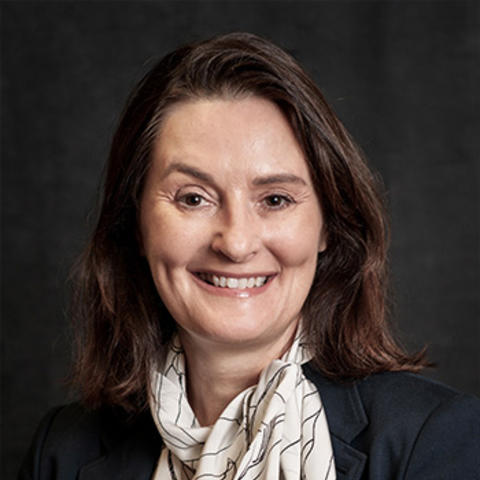
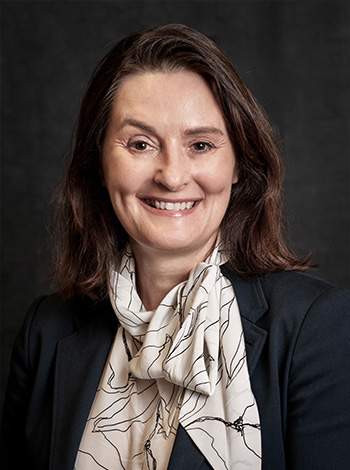
Bio
During residency training, I was actively involved in medical education and teaching as Chief Resident. While working at Hennepin County Mental Health Center and Hazelden Betty Ford Foundation, I have supervised the University of Minnesota, Hennepin County Medical Center Psychiatry Residents and Mayo Clinic Child Psychiatry and Addiction Psychiatry Fellows.
I am board-certified in child, adolescent, and adult psychiatry. I am passionate about working with young adults and adolescents with substance use disorders. I see my role as a diagnostician who uses mindfulness, cognitive-behavioral therapy, motivational, and psychodynamic approaches, coupled with responsible use of psychiatric medications to assist with symptom management as well as collaboration with support systems.
In my career, I have worked with diverse populations, including children in the welfare and juvenile justice systems, various settings, including community-based clinics and residential programs. I have extensive experience working with young adults and adolescents with substance use and co-morbid disorders. I enjoy working on a multidisciplinary team to provide my patients with the most comprehensive care, and I appreciate the importance of family collaboration. I believe strongly in the psychiatrist's role as a diagnostician and the prudent and responsible use of psychiatric medications to assist symptom management. I prescribe controlled substances judiciously.
Outside of my clinical practice I am interested in intersections of use of documentary photography and narratives to promote resilience and gratitude. I have led documentary photography and oral history projects with grant support from the Minnesota State Arts Board, Metro Regional Arts Council and the Minnesota Historical Society.
Administrative Assistant
(for academic support only)
Shelly Slominski
slomi001@umn.edu
In the Media
- 2023: Quoted in this StarTribune article titled, “Polish immigrant, 88, recalls astonishing journey to northeast Minneapolis.
- 2023: Quoted in this Minneapolis Star Tribune article titled, “A Minnesota family’s desperate search for care reveals state’s mental health crisis”.
- 2022: Dr. Litak is the focus of this article titled, "New child & adolescent inpatient medical director values the teamwork involved in the treatment process".
Education
Fellowships, Residencies, and Visiting Engagements
Licensures and Certifications
Languages
Contact
Address
Department of Psychiatry & Behavioral Sciences, F282/2A West Building, 2450 Riverside Avenue South, Minneapolis, MN 55454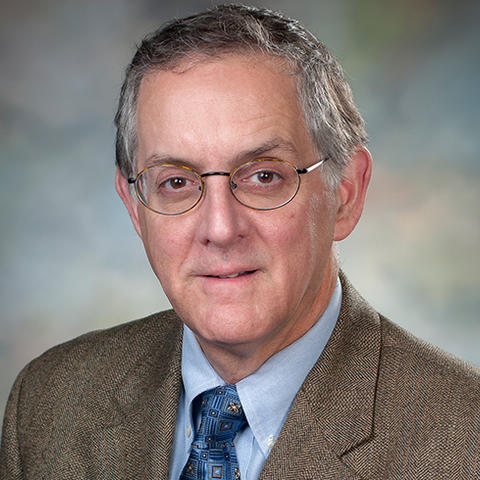
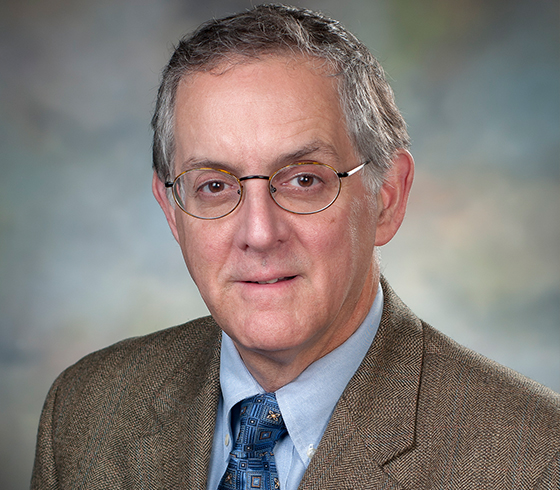
Bio
I received my BA from the University of Pennsylvania and received my medical degree from Columbia University Vagelos College of Physicians and Surgeons in New York City. I completed an internship in internal medicine at Mount Zion Hospital, UCSF in San Francisco, and my residency in psychiatry at New York-Presbyterian/Weill Cornell Medical Center, where I was Chief Resident. I then did fellowship training in Consultation-Liaison Psychiatry at Montefiore Hospital, Einstein Medical College, Bronx, NY. Medical education has been a key focus throughout my career. I have held educational and clinical leadership roles at Weill Cornell Medical College in New York City, the University of Pennsylvania in Philadelphia, the University of Maryland in Baltimore, and Long School of Medicine, UT Health San Antonio where I was founding Chair of the Department of Medical Education.
I am an adult psychiatrist with a focus on depression and anxiety disorders with coexisting medical conditions, providing care that combines psychopharmacology and psychotherapy. Treating patients from underserved communities and training doctors from communities underrepresented in medicine is a priority. I provide faculty and educational program development to clinical departments, including techniques that faculty can use to effectively supervise and teach the next generation of physicians.
Expertise
- Anxiety disorders
- Depression
- Psychiatric disorders in medical settings
- Combining psychopharmacology and psychotherapy
Administrative Assistant
(for academic support only)
Teneshia Collins
coll1148@umn.edu
In the Media
- 2022: Featured in this article titled, "Child and Adolescent Psychiatry Fellowship making meaningful changes to improve the fellows’ experience".
Education
Fellowships, Residencies, and Visiting Engagements
Licensures and Certifications
Honors and Recognition
Professional Memberships
Selected Publications
Selected Presentations
Contact
Address
Department of Psychiatry & Behavioral Sciences, F282/2A West Building, 2450 Riverside Avenue South, Minneapolis, MN 55454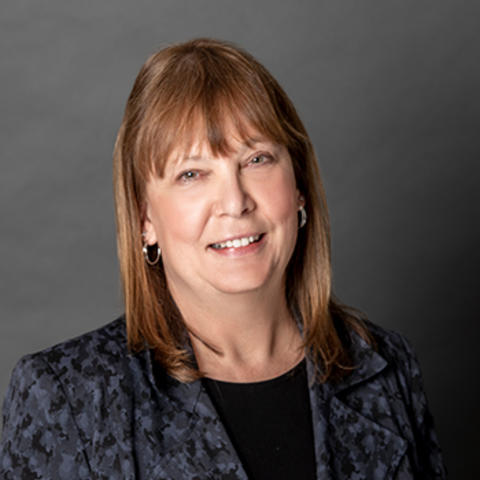
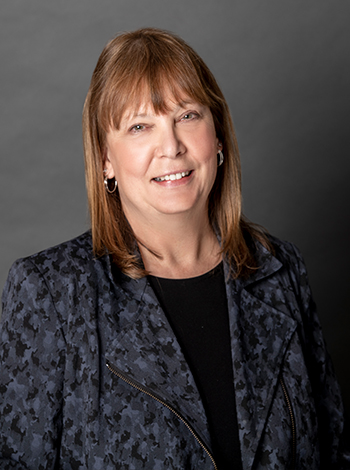
Bio
I received my BA in psychology at the University of Minnesota. I completed my MA and my PhD in counseling and human development from the University of Iowa with a focus on Marriage and Family Therapy and a minor in Organizational Management.
I am a licensed psychologist and a Licensed Couples, Marriage, and Family Therapist. As a family therapist, I provide therapy through the developmental lifespan ages 5-95. I specialize in emotional dysregulation, mood disorders, PTSD--trauma-informed therapy, Eating Disorders, Family therapy, and psychotherapy supervision. I am committed to providing culturally-affirming care to diverse patients and families and providing advocacy in the community.
In my current faculty position, I teach Introduction to Psychotherapy, family and group psychotherapy courses and supervise psychiatry residents and interns in individual, group, and family therapies. As the assistant residency training director, I am in charge of coordinating the psychotherapy training in the Adult Psychiatry Residency program. I am the co-director of the Dialectical Behavioral Therapy program (DBT). I am active in national and local organizations including AADRT, NAMI providing workshops and community service. I am an active member of various committees in the department including the Diversity and Inclusion, RTC, and Doctors at the Borders.
Expertise
- Dialectical behavioral therapy (DBT)
- Behavioral activation
- PTSD
- Exposure therapy
- Individual, family, and group therapy
- Cognitive behavioral therapy (CBT)
Administrative Assistant
(for academic support only)
Teneshia Collins
coll1148@umn.edu
In the Media
- 2023: Featured in the last article of our series for National Mentoring Month titled, "Department mentor helps build her mentees’ professional identities.
- 2021: Featured in this MinnPost piece titled, “Stress around post-COVID reintegration can mimic social anxiety.
- 2020: An interview by Scripps National with Dr. Richelle Moen about how to effectively handle post-election conversations was syndicated by 36 news stations across the U.S.
- 2020: Interviewed Fox9 about how to talk with relatives and friends of a different political persuasion following the election
Research Summary
Borderline Personality Disorder Emotional Dysregulation & Self-Harm Teaching and Supervision
Clinical Summary
Individual, Family and Group Therapy; Dialectical Behavioral Therapy (DBT); Emotional Dysregulation, Eating Disorders